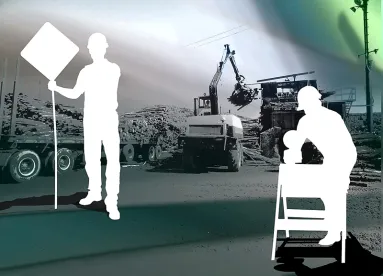Benson v. Coca Cola Co. is a workers’ compensation case decided in 1972 that is still good law today. This case stands for the proposition that if there is no demand upon the Employer to provide treatment, there is no liability for payment of same, unless the request by injured worker would have been futile.
In this case the injured worker, Mr. Benson, fell off of a tank tuck and injured his head, back, and neck. He went to the company clinic with significant complaints. The company doctor examined, took x-rays (negative), and prescribed heat, muscle relaxers, and pain meds.
The injured worker refused the treatment at the company clinic and failed to follow up the next day at the company clinic as prescribed.
Later that same day the injured worker went to his own orthopedic doctor, who diagnosed him with a concussion and possible spinal fracture. The doctor also said he needed to be hospitalized for cervical traction.
Without asking the employer for this medical care, the injured worker was admitted by his own doctor to the hospital for one week and then released and put in a cervical collar.
The worker contended that the employer offered inadequate care that equaled refusal or neglect to treat under the workers’ compensation statute. The employer contended it was not given the opportunity to provide treatment. The worker argued that the treatment he got on his own helped him to get better, so in hindsight the employer should be responsible to pay for it.
The New Jersey Statute – N.J.S.A. 34:15-15 provides the following:
The employer shall furnish to the injured worker such medical, surgical and other treatment, and hospital service as shall be necessary to cure and relieve the worker of the effects of the injury and to restore the functions of the injured member or organ where such restoration is possible… If the employer shall refuse or neglect to comply with the foregoing provisions of this section, the employee may secure such treatment and services as may be necessary and as may come within the terms of this section, and the employer shall be liable to pay therefor…
In this case, the Workers’ Compensation Judge ruled against the workers’ motion that the employer be responsible for the treatment bills finding that N.J.S.A. 34:15-15 (see above) did not automatically give discretion to the injured employee to seek independent medical assistance, thus the outside medical treatment and hospitalization was unauthorized.
The worker appealed, and the Appellate Court found that the statute provided that upon refusal or neglect of the employer to provide adequate and proper medical treatment, the employee could either file a claim petition or, after a request to the employer, seek his or her own treatment at the employer’s expense.
The Court went on to state that where such a request would be futile, it was unnecessary that the formality of asking and filing a claim take place. The Appellate Court found that the trial court lacked findings with respect to whether a further demand would have been futile and unnecessary, and sent the case back to the trial judge for further findings of fact. If the court found that the request by the worker for treatment would have been futile, then Mr. Benson was not required to ask for the treatment and the employer had to pay for the unauthorized medical care.
Moral of the story – Always ask for treatment from the employer first, preferable in writing, unless you can prove that the request would be futile.



 />i
/>i
